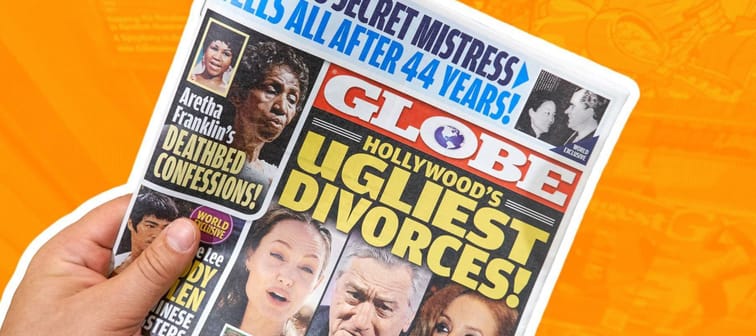The first American tabloid
The term “penny press” was coined thanks to a man named Benjamin Day, who started his first paper, The New York Sun, in 1833.
At the time, it was common to sell newspapers for six cents each (which works out to $2.18 in today’s money), but six cents was a price that put newspapers out of reach for many working class Americans.
Unlike many of his contemporaries, Day believed that a significant portion of the working class was literate, and that if he made the news more affordable by lowering the price of his papers to a single penny, a whole new demographic of readers would come running.
They did.
Day understood that his readers wouldn’t be concerned with the subjects covered by his more expensive competitors, and published news items he thought they would like: local sports, crime and scandals.
By the following year, The New York Sun had the highest circulation of any paper in the country.
Meet Your Retirement Goals Effortlessly
The road to retirement may seem long, but with WiserAdvisor, you can find a trusted partner to guide you every step of the way
WiserAdvisor matches you with vetted financial advisors that offer personalized advice to help you to make the right choices, invest wisely, and secure the retirement you've always dreamed of. Start planning early, and get your retirement mapped out today.
Get StartedThe man on the moon
In 1835, The New York Sun published a series about how an English astronomer had discovered life on the moon. Although it was never meant to be taken seriously, a lot of people believed the story.
A month after the series’ initial publication, the newspaper admitted the whole thing was a hoax.
The “Great Moon Hoax” didn’t hurt The Sun’s paper sales, but it did change the trajectory of tabloids — in their early years, they were legitimate news sources, but today, tabloids are better known for “making up” the news rather than reporting it.
The modern-day tabloid's golden era: Raking in the riches
The 1970s were the golden era for tabloids. As of the late 1970s, according to The Washington Post, the owner of The National Enquirer had boosted the paper’s circulation from 17,000 (when he bought it in 1952) to 6 million.
The Enquirer’s base salaries were a testament to his successful business model.
In 1978, the entry-level salary for a National Enquirer reporter was $32,400 USD (just under $152,000 in today’s money), about double what The New York Times paid.
Kiss Your Credit Card Debt Goodbye
Having a single loan to pay off makes it easier to manage your payments, and you can often get a better interest rate than what you might be paying on credit cards and car loans.
Fiona is an online marketplace offering personalized loan options based on your unique financial situation.
When you consolidate your debt with a personal loan, you can roll your payments into one monthly installment. Find a lower interest rate and pay down your debt faster today.
Get StartedThe hefty price of sensation
Given that gossip is literally the tabloids’ stock in trade, they have obviously faced some backlash over the years.
One of the most historic examples of a celebrity suing a tabloid for defamation is the case of Carol Burnett.
In 1976, the actress sued The National Enquirer for defamation and (eventually) won a $1.6 million settlement, which, The Washington Post said, amounted to $24,242 per word of the item written about her.
Pixels vs. pennies: Adapting to the digital age
Fast forward a few decades to the 1990s; with the advent of the internet, all types of traditional publishing were in free-fall.
Not only did the popularity of cable TV mean a 24-hour news cycle, but people were increasingly turning on their computers to get their news.
It was the era where Americans liked to go “where the stink [was]”, in the words of journalist Matt Drudge.
Although The Atlantic reported that, in 1999, 5 million tabloids were selling in the U.S. every week, “paper tabloids” were also obviously affected by this swing to the digital.
Entertainment site TMZ launched in 2005, signaling that the “old way of reporting on scandals" had best get with the times.
Hammering a nail into its own coffin
Publishing little white lies about celebrities is one thing, but insiders say that The National Enquirer crossed the point of no return in the run-up to the 2016 election.
The Enquirer got itself into trouble with its willingness to “catch and kill” news about Donald Trump. To “catch and kill” means to find items that are potentially inflammatory, buy them, and then bury them.
The fallout from this period of The National Enquirer’s lifetime was severe. Its readership tumbled, its CEO was fired, and the tabloid was put up for sale.
It finally sold in early 2023 for a little less than $100 million, which seems like a “David” chunk of change for a business that had once been a Goliath.
Rolling up the loose change
It seems unlikely that we’ll get rid of “tabloid news” entirely, what with the never-ending possibilities of gossip sites around the web.
But at the same time, at least according to Axios, it doesn’t seem like the paper tabloids are long for this world.
Sooner rather than later, all they’ll be good for is packing up other nostalgic items, and living out their retirement in an attic somewhere.
Sponsored
Follow These Steps if you Want to Retire Early
Secure your financial future with a tailored plan to maximize investments, navigate taxes, and retire comfortably.
Zoe Financial is an online platform that can match you with a network of vetted fiduciary advisors who are evaluated based on their credentials, education, experience, and pricing. The best part? - there is no fee to find an advisor.







